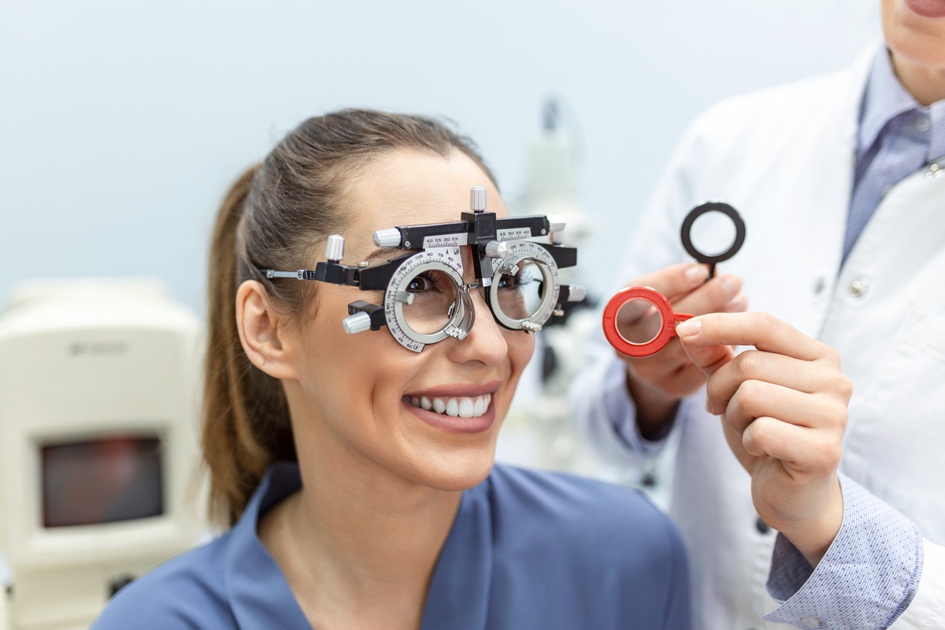
Should I See an Optometrist, Ophthalmologist or Optician?
Have you ever searched “eyecare” online? If so, you likely found three different terms for professionals who deliver such care: optometrist, ophthalmologist and optician. However, you may still need clarification about what type of eyecare each professional provides. If so, this information below will shed some light.
Doctor or Not?
All three eye professionals have received training about eyes and vision — with crucial differences. For example, optometrists and ophthalmologists are state-licensed eye doctors; however, optometrists are doctors of optometry, while ophthalmologists are medical doctors.
Opticians, for their part, have received training on dispensing vision-correction appliances, such as eyeglasses and contact lenses, but they’re not qualified to diagnose and treat eye diseases. Their primary function is to fill optometrist and ophthalmologist prescriptions.
Optometrists
Optometrists provide primary vision care for patients of all ages. They can test your vision and prescribe eyeglasses or contacts to improve your sight. They can also diagnose, treat and manage eye problems that make it difficult to see.
Optometrists hold doctor of optometry degrees. Earning this credential takes four years of graduate instruction after three to four years of undergraduate education. Some optometrists also undertake a one- or two-year fellowship to practice in an optometry specialty. Once optometrists complete their schooling and pass a licensing exam, they are qualified to:
· Conduct eye exams and vision tests.
· Prescribe and fit eyeglasses.
· Fit contact lenses, especially for patients with complex needs.
· Manage and treat certain eye conditions, such as glaucoma.
When should you book an appointment with an optometrist? When your eyes are healthy and you need a routine eye exam and vision test. You should see an ophthalmologist if you think you have a serious eye problem and/or need laser vision correction or other surgical procedure.
Ophthalmologists
Ophthalmologists are medical doctors who specialize in diagnosing and treating eye diseases. Licensed as medical doctors, ophthalmologists have graduated from college and completed at least eight years of additional training. Like optometrists, ophthalmologists can prescribe eyeglasses and contacts. However, they also can treat all eye diseases and perform surgery, often using lasers.
Ophthalmologists are the most highly trained eye professionals, which allows them to provide comprehensive vision support, including:
· Eye exams and other vision services.
· Medical treatments for glaucoma, iritis and chemical injuries.
· Surgical procedures for cataracts, crossed eyes or glaucoma.
· Medical care for eye problems related to medical conditions such as arthritis or diabetes.
When should you see an ophthalmologist? When you have a chronic eye ailment or believe you might need surgery. Another reason is to have the broadest possible eyecare available in case you develop a problem later.
Opticians
Opticians specialize in filling eyeglass and contact lens prescriptions. They start by helping customers select the appropriate method of vision correction — eyeglasses or contacts — and then choose the best eyeglass frames or contact lens type for their needs. Because the range of eyeglasses and contacts are broad, opticians must have deep optical product knowledge and the ability to counsel clients on which frame or contact lens to choose from many different manufacturers and brands.
When is it time to visit an optician? When you’ve already seen an optometrist or ophthalmologist and have a vision-correction prescription ready for filling.
Once you’re familiar with the three types of eyecare professionals, it’s easier to begin finding the right one for you. Verifying an eyecare provider’s credentials and experience is an essential first step, as this will help you make an informed decision about whom you’ll entrust with your eyesight.
The Healthy Vision Association is dedicated to improving vision health by providing access to unique vision and overall health products, services and information. To view your HVA member benefits, visit healthyvisionassociation.com.
